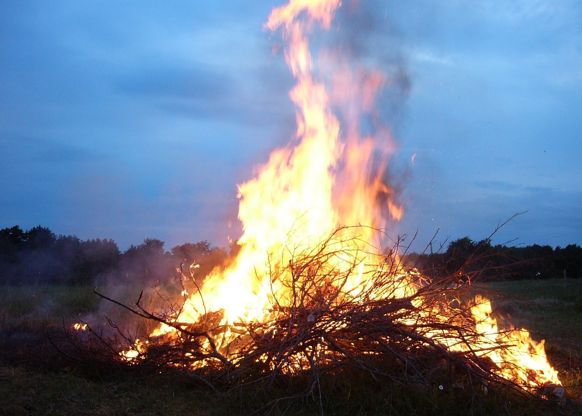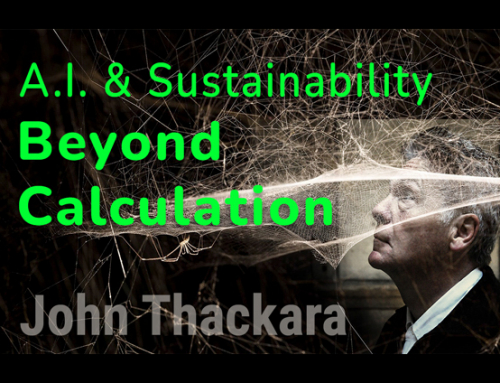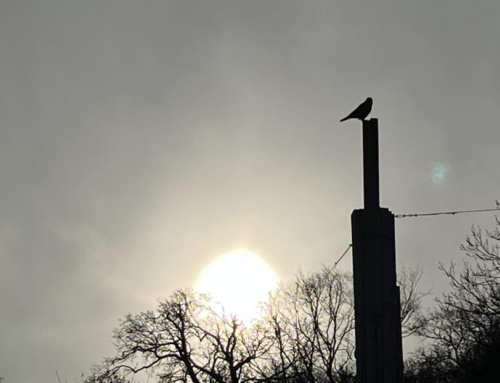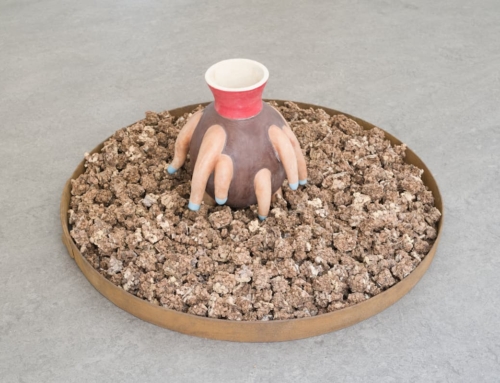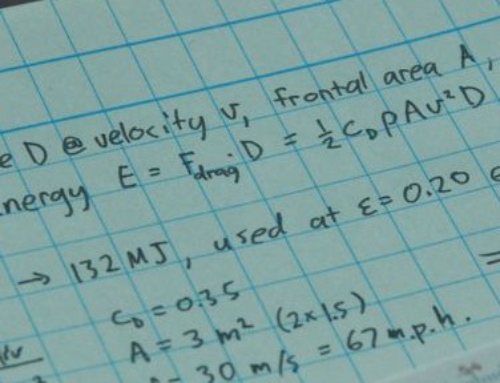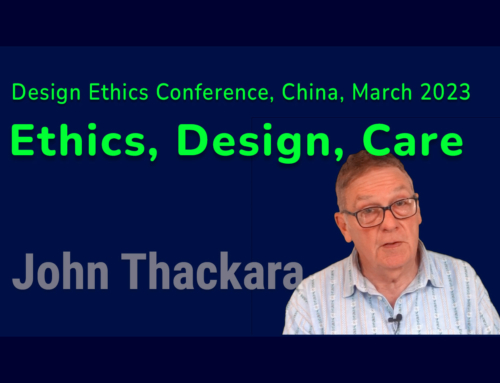In 2010 I was invited by my friend Andrew Polaine to run a workshop in Luzern, Switzerland, about service design for higher education. This text was my brief to the participants.
Our topic is service design for higher education so it would tempting to focus in immediately on the ‘how’ side of things. But the ‘how’ stuff never makes sense to me until I’m at least partially clear on the ‘why’ question.
The ‘why’ question is not an academic one. Higher education is one of the main motors of an economy that can only survive if it keeps growing, to infinity. And yet this economy, and the education that drives it, is designed to to grow to infinity in a biosphere whose carrying capacity is finite. That’s what makes the economy we have now a doomsday machine. Running after GDP, we ensure the destruction of the biosphere for economic reasons.
So that’s why the ‘why’ question matters. Higher education will remain a powerful cog in the doomsday machine until:
– it helps us regain respect all living beings and the non-living world;
– it reminds us that we have a limited understanding of how things work;
– it teaches us respect for the wisdom of other cultures in the world, and for other cultures in history.
The limits of online
I was prompted to make these portentous comments by re-watching Jane McGonigal’s TED talk. I was absolutely knocked out when McGonigal’s World Without Oil happened. It seemed to me, then, that Alternate Reality Games (ARGs) portended a revolutionary use of networks and collaborative media to stimulate collaborative work in the real world. In her talk, McGonigle waxes lyrical about the potential of games to give players “the means to save worlds”. What if we could harness this gamer power to solve real-world problems? McGonigal asks. But then she says: “Reality is broken, and we need to make it work more like a game”.
And here, I’m afraid, she loses me. Because it’s not reality that’s broken – it’s the way we perceive reality, and act in it, that’s broken.
Digital communications are in part to blame for this. They have added a new layer of insulation – a kind of blindfold – between human beings and the biosphere. Thanks to the internet, and more recently with social networking, many people feel more connected to each other. But we are now *less* connected to the natural contexts and systems on which all life – including our own – depends.Technology separates us from direct experience of the world. It therefore blinds us to the consequences of our destructive economic behaviour.
Gaming is no exception. I don’t dispite its Its visceral power to engage and ‘incentivise’. As McGonigle points out, 500 million people are spending billions of hours gaming now – as many hours as they spend in formal schooling – and their number could treble within a few years. But just because gaming is engaging does not mean it is enlightening. On the contrary: it surely blinds us to just how little we understand how things in the real world work.
The way McGonigle talks about gaming and ARGs, the world’s problems could be solved if the cleverness and commitment of one billion online gamers were to be focused on real-world issues. Nowhere in this narrative does McGonigle question the limits to understanding that humans have by virtue of being – well, human. Otherwise stated: Intelligence is embodied; gaming is not.
The good news is that, in reflecting on ways education might change, we don’t have to choose only between ARGs and Armageddon. On the contrary, an alternative to the doomsday machine economy is already being made, and it involves a lot of learning at all levels.
A new economy is being made wherever people are growing food in cities. It’s being made by people opening seed banks, or where schools are joining Community Supported Agriculture schemes. It’s being made where communities, with the support of scientists and experts, are removing dams, depaving roads, and restoring watersheds.Anywhere you find car-share schemes, or off-grid energy pilots – there is a new economy hotspot. You’ll find a new economy wherever people are launching local currencies – nine thousand examples at last count. In their own version of a non-doomsday economy, seventy million African citizens are exchanging airtime – not cash. Non-money trading is exploding.
Thousands of groups, Thousands of experiments. For me, these are the elements of an alternative education to the doomsday machine mainstream. These thousands of real-world projects are also educational experiences that in one way or another to the extent that they:
– are based on the mode of the live project in a real place;
– involve the creation of a marketplace to connect ideas and projects together in viable enterprise;
– entail cross-pollination of models, tools and experiences from other places, and other times;
– inculcate not just understanding but love for interconnectedness and interdependence, of systems, resource flows, energy and nutrient cycles
Service design for higher education
Oh yes, that’s our topic. As I stated at the top, we need an education that:
– helps us regain respect all living beings and the non-living world;
– reminds us that we have a limited understanding of how things work;
– teaches us respect for the wisdom of other cultures in the world, and for other cultures in history.
I do not have a proposed curriculum that we can discuss this week. Neither do I have a blueprint for a new kind of post-doomsday-machine university. The best I can do is describe what, for me, would be the ideal attributes of someone emerging from a next-generation educational environment. This person will be able to:
- listen and hear outside her or his usual ways of thinking;
- be sensitive to cross-cultural perspectives
- work collaboratively in groups; be trained in the art of hosting or similar;
- use and apply systems thinking
- help people to tell their stories
- prototype and demo things, and not be satisfied to write reports;
- look outside the tent for solutions that may already have been designed somewhere else (or in another time);
Further reading
What is an advanced design education?
http://www.doorsofperception.com/archives/2009/11/high_entropy_mo.php
Schools as gated communities
http://www.doorsofperception.com/archives/2005/12/schools_as_gate.php
New geographies of learninghttp://www.doorsofperception.com/archives/2000/09/new_geographies.php
Other John Thackara ramblings on learning
http://www.doorsofperception.com/archives/learning_institutions/
(Wodcast): Should design schools be closed down?
http://www.wodcast.org/wodcast_webarchive/wodcast_thackara.mp3
